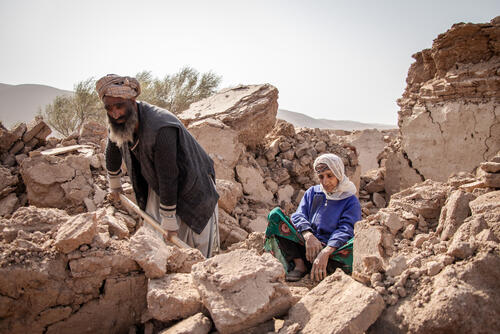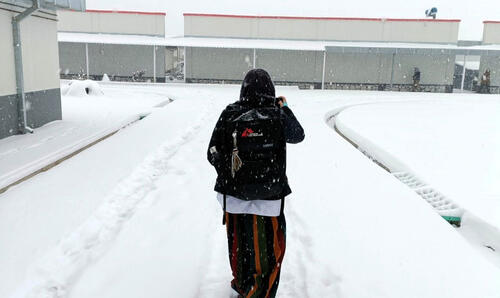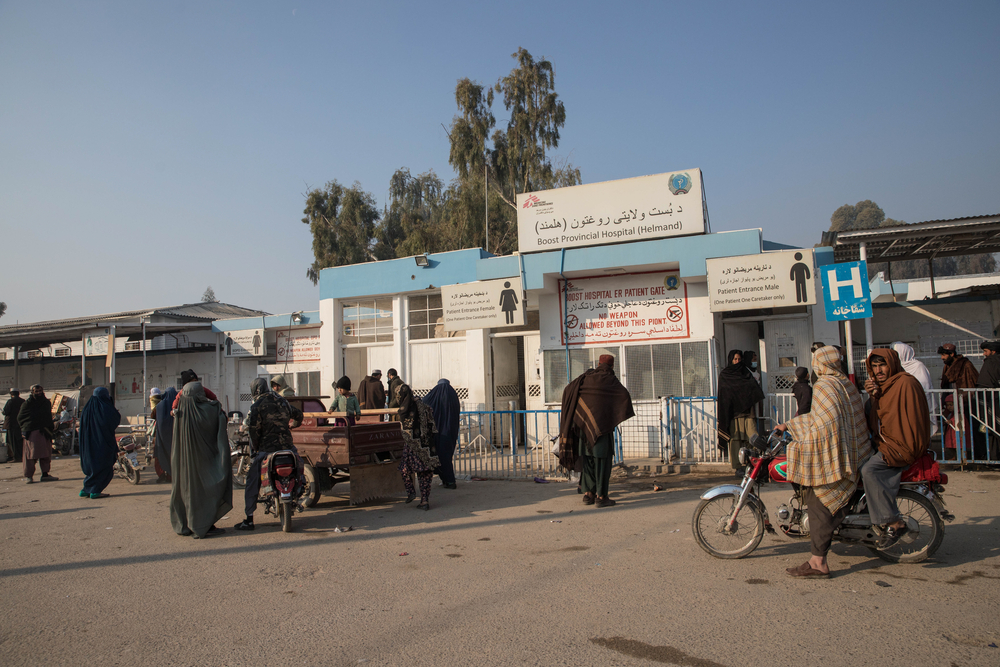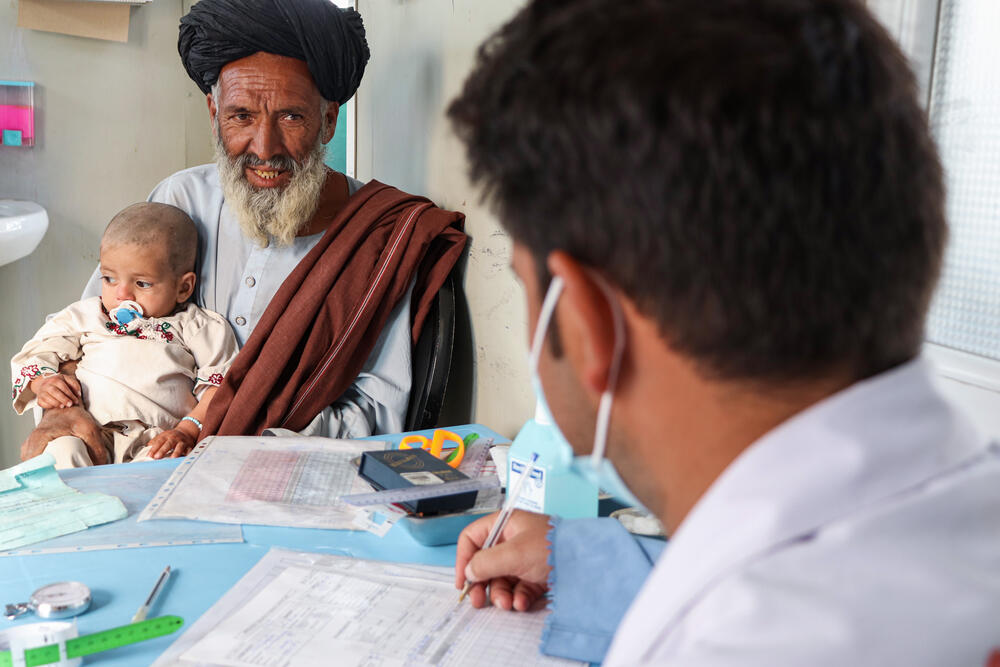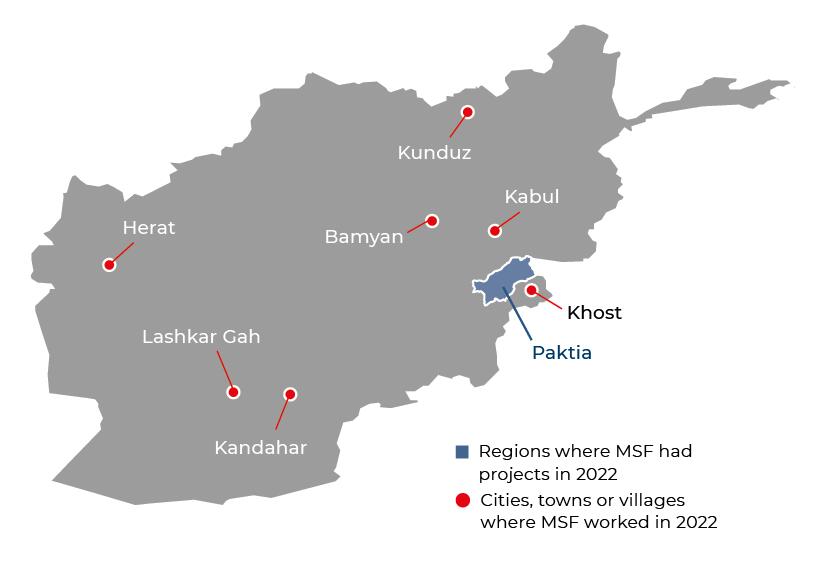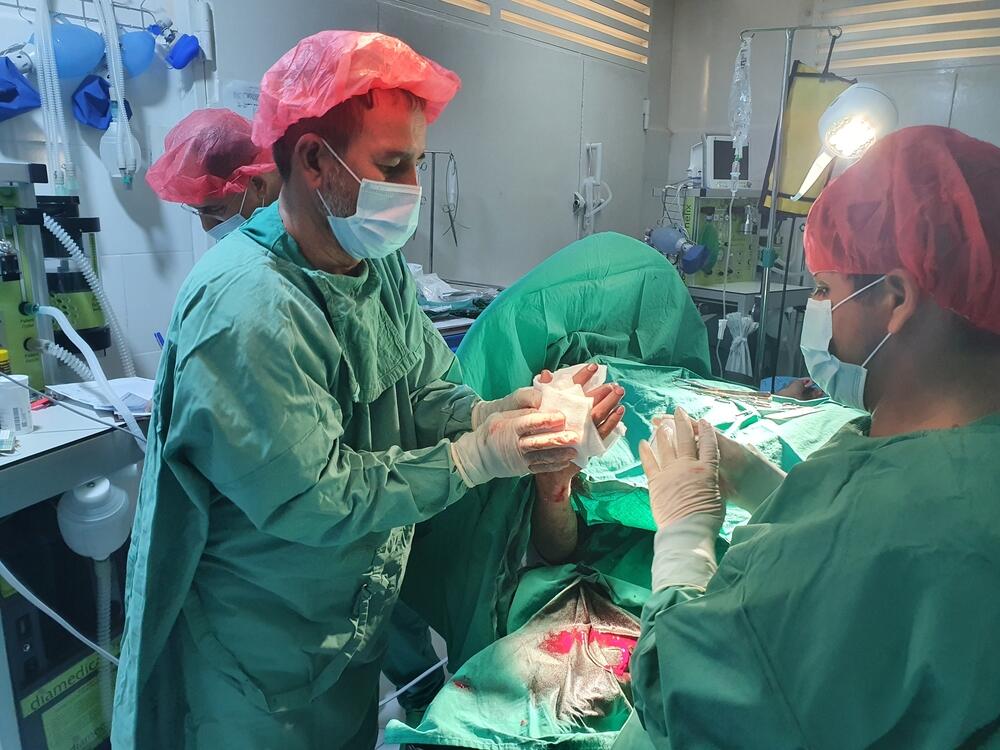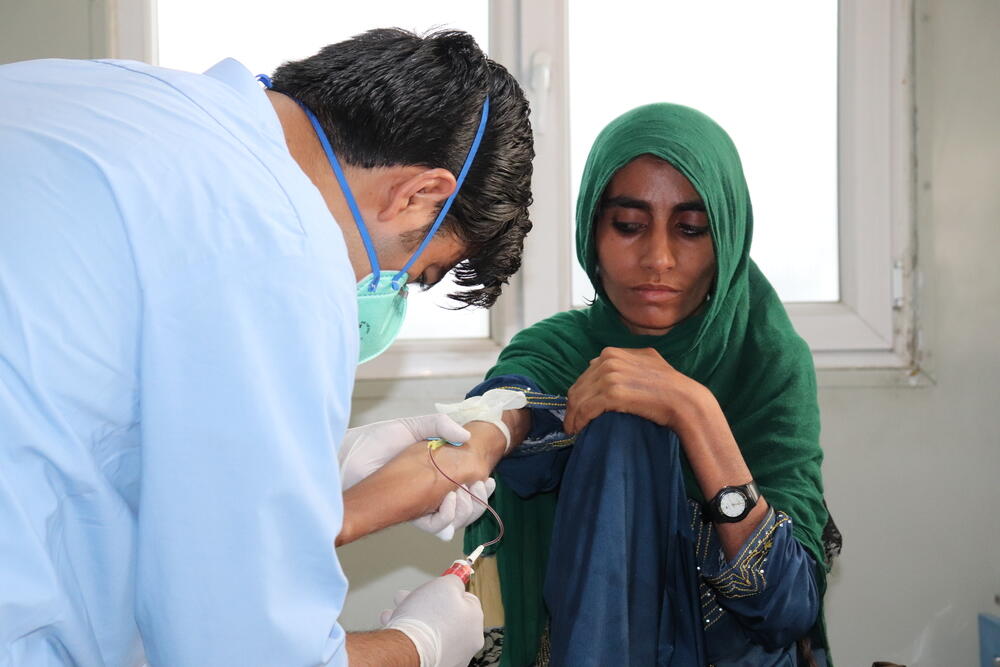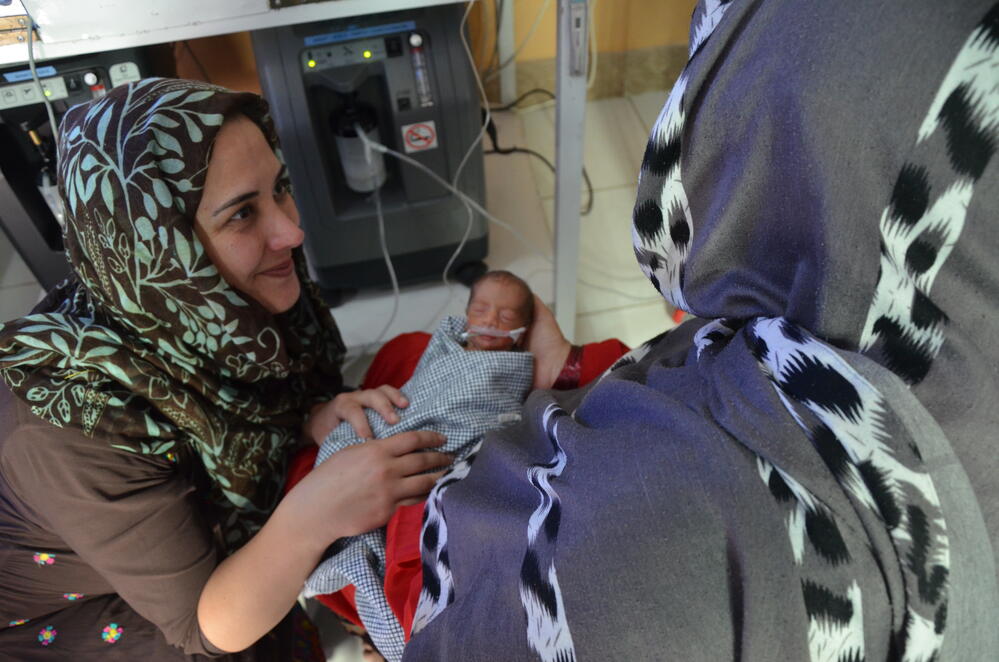Crisis in Afghanistan
Our medical teams have continued to provide care to the people of Afghanistan throughout the recent conflict and the change of government.
Most hospitals and medical facilities in across Afghanistan are under extreme pressure with staff and equipment shortages due to a severe lack of funding. Some are barely functioning or are closed altogether.
Since the change in power, Médecins Sans Frontières / Doctors Without Borders (MSF) has continued to provide life-saving medical care to people caught in the chaos.
For months, our teams have seen high numbers of patients in Helmand and Herat and are frequently working beyond their capacity.
The ripple effect of pre-existing sanctions and the financial measures against Afghanistan’s new government are being felt nationwide. The country faces near economic and institutional collapse and tens of thousands of people have lost their jobs.
The banking sector is paralysed, preventing people from accessing their savings and making it harder for organisations providing healthcare to pay salaries and cover the running costs of hospitals.
Update: On 21-22 June, an earthquake hit Khost and Patika provinces in Afghanistan. Hundreds of people were killed and thousands wounded. MSF sent teams to provide urgent medical care and mental health support.
"Our main concern now is that we’re running out of beds. At the moment, it’s two families – one mother and one child – to every large bed."
In five locations across Afghanistan, our teams are treating emergency trauma cases, supporting people with chronic conditions and welcoming new life into uncertain times.
MSF is working in Lashkar Gah and Kandahar, both in the south, Herat in the west and Kunduz in the north. MSF also runs a maternity hospital in Khost, in the east.
The information about our response, below, is correct as of August 2022 and is likely to change.
Our emergency response across Afghanistan
Boost hospital in Lashkar Gah, Helmand province, is one of MSF's biggest and busiest projects worldwide.
The 300-bed hospital has been operating over capacity since September 2021. From January to June 2022, the team undertook more than 109,000 emergency room consultations and assisted more than 11,000 births.
We continue to see large numbers of patients in our emergency room at around 20,000 a month - the highest number of patients since we first started supporting the hospital in 2009.
Our teams are also treating concerning numbers of malnourished children, the majority under five years old, and 3,614 measles cases in the first six months of 2022. Most of the patients in the 35-bed isolation unit have measles and we have extra isolation capacity available if needed.
2021 figures
- 164,747 consultations in Boost hospital’s emergency room
- 30,960 patients admitted for inpatient care
- 18,907 deliveries assisted, including 2,417 complicated deliveries
- 6,962 surgical interventions
- 3,234 malnourished patients admitted to MSF’s inpatient feeding centre
Our Kunduz trauma centre opened in August 2021 at the height of the crisis.
Staff at the facility continue to provide expert trauma care, and from January to June 2022 held 8,370 consultations in the emergency room.
We also undertook 1,905 surgical interventions and treated 1,759 patients for measles.
We have also been vaccinating people against COVID-19.
2021 figures (Kunduz trauma centre opened in August 2021)
- 4,124 patients triaged in the trauma centre
- 3,140 patients admitted to the emergency room
- 1,283 surgical procedures performed
In Kandahar, we continue to run our drug-resistant tuberculosis project, with 8,459 consultations and 400 patients started on treatment between January and June 2022
In December 2021, we opened an outpatient feeding centre next door to our TB clinic to provide malnutrition care to children aged between six months and five years. We also screen children at Mirwais regional hospital and enrol those with severe acute malnutrition, while referring critical cases for inpatient treatment.
In the first six months of 2022, we admitted 181 children to our inpatient feeding centre, and screened more than 16,500 patients through our ambulatory treatment centre.
2021 figures
- 11,522 patients consulted for drug-sensitive TB in 2021
- 253 patients with drug-sensitive TB patients started on treatment since the start of the project in 2016
- 115 patients with drug-resistant TB enrolled on treatment in 2021
- 151 patients successfully completed treatment since the start of the project in 2016
In Herat, we saw a rapid increase in measles cases in the first six weeks of 2022 with 427 infections. By June, our teams had treated more than 4,892 patients for the virus.
We have turned one of the containers in the inpatient feeding centre into a measles isolation ward where we admit patients, whether or not they are malnourished, while our team worked to establish additional isolation capacity in the MSF-supported Herat regional hospital.
The paediatric department at Herat regional hospital has been incredibly busy with 27,871 paediatric emergency consultations from January to June 2022.
At our clinic in Kahdestan, our teams held 13,292 consultations.
2021 figures
- 69,024 outpatient consultations at MSF's Kahdestan clinic
- 2,433 patients admitted to MSF's inpatient feeding centre
- 1,019 patients admitted to MSF’s COVID-19 treatment centre
Khost is home to MSF’s busiest maternity hospital worldwide.
The hospital usually focuses on treating patients with complicated conditions, however, during the height of the crisis, it was decided to temporarily expand the admission criteria to ensure that more mothers and newborns could reach safe maternal and neonatal care.
From January to June 2022, 10,058 deliveries were assisted by the team Khost.
A total of 1,018 young patients were admitted to our neonatal department and there were 695 emergency obstetric surgical interventions.
2021 figures
- 22,560 admissions to Khost maternity hospital
- 18,894 deliveries assisted
- 2,021 babies admitted to the neonatal ward
- 752 emergency caesarean-sections performed
Timeline: MSF in Afghanistan
Page last updated: 22 February 2022
Latest news from the crisis in Afghanistan
